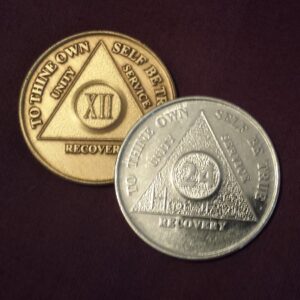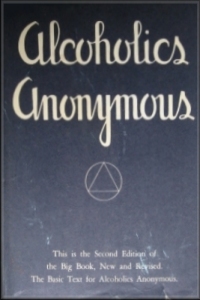My disease is a bitch. Even in recovery, there isn’t a day that I’m not aware that I have an eating disorder.
The best way I can describe my disease is it’s the Fast-Eddie-used-car-salesman-older-cousin of The Oatmeal’s The Blerch. It feels like it’s floating next to me, everywhere I go, and I can’t shut him up. For St. Patrick’s Day, I had a constant barrage of thoughts about binging and purging. I felt like my Blerch was hovering next to me saying:

“Check out all the St. Patrick’s Day goodies. You can have an entire tray of cupcakes with green sugary buttercream frosting. Oh – and a Shamrock shake. You’ve never had one of those. You can eat all the things, and don’t worry about the calories – because you won’t keep it down. It’s win-win. It’ll be great.â€
Reality check: When I was in my active disease, forcing myself to binge and purge was not great. It hurt – a lot. Eating that much hurt my stomach, and then forcing it to contract to vomit really hurt. It’s violent, and when it’s over, my head throbbed, I had no energy, and I felt like shit.
Ugh. I wanted to growl, “Shut up shut up shut up. Shut the fuck up!†My disease tried to convince me that it’s not dangerous, that all the literature that binging and purging is hard on your heart and rips your esophagus apart was written by neurotic doctors. My disease said those are rare instances. It wouldn’t happen to me. Reality check: Eating disorders have the highest morbidity rate of any mental illness.
I dragged my fingers through my hair in frustration, then grabbed my phone and sent a single request to two of my confidants: “Tell me again why it’s bad to eat all the things and puke my guts out. My disease is messing with my head.†They both reminded me of the myriad of ways this disease can destroy my health. One of my confidants is also in recovery from an eating disorder. He reminded me of the powerlessness that comes with this disease. Giving in once makes it that much harder not to give in next time (and the next time, and the next).
I asked my therapist if my Blerch will ever go away. He said it might not, but it can get quieter. I likened that idea to Russell Crowe as John Nash in A Beautiful Mind making the decision to ignore his hallucinations, though they seem to always be lurking in the shadows. As he said, “I’ve gotten used to ignoring them and I think, as a result, they’ve kind of given up on me. I think that’s what it’s like with all our dreams and our nightmares . . . we’ve got to keep feeding them for them to stay alive.â€
I’m not fond of the idea of living with my Blerch for the rest of my life, but that may not be something I can control. The disease of addiction never goes away. My default setting may always be to self-medicate and self-destruct, but choosing recovery means I don’t have the luxury of indulging these thoughts. Perhaps if I ignore it long enough, my Blerch will finally shut up.

